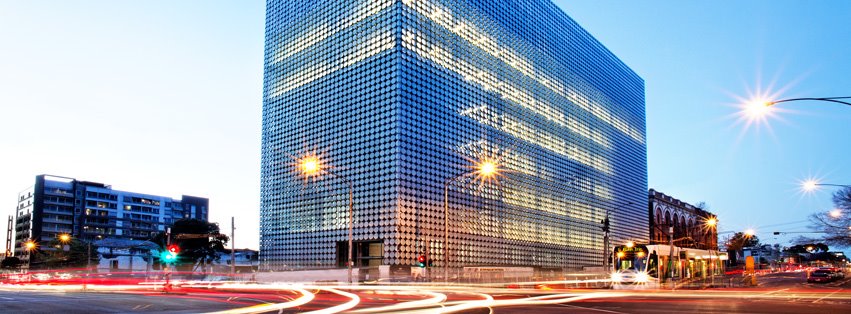GPO Box 2476, Melbourne VIC 3001, Australia
Career Counselling

RMIT University is a global leader in technology and design education. One of the earliest institutions of its kind in Australia, the University now has a large international footprint, with almost 100,000 students enrolled across its campuses in Melbourne and Vietnam, and large investments in excellence in teaching, research, and career services for its students.
RMIT University has five campuses in total, with three located in Melbourne. The main Melbourne City Campus occupies pride of place in the city's CBD. The suburban Bundoora location is known...
| Establishment year | 1887 (University status in 1992) |
| Total Students | 95,913 (total) 62,534 (equivalent full time students) |
| International Students | 35,397 |
| QS World University Rankings 2024 | 140 |
| Campus Size | N/A |
| Total Number of Campuses | 5 (3 in Melbourne, 2 in Vietnam) |
| University Website | https://www.rmit.edu.au/ |
| No. of Schools and Divisions | 4 Colleges (Business and Law, Design and Social Context, Vocational Education, STEM) |
| Nobel Prize Winner Alumni | 0 |
| No. of Education Programs | 128 (undergraduate), 338 (postgraduate) |
| Student to Faculty ratio | 36.5:1 |
RMIT University offers undergraduate and postgraduate courses through 4 Colleges, which are further subdivided into 16 Schools.
International undergraduate applicants to RMIT must satisfy three levels of requirements: academic, English proficiency, and age. The age requirement is simple: most programs require candidates to be at least 16 years old as of the date of commencement. Every degree sets its own minimum academic requirements in terms of performance in equivalent Year 12 examinations across the world. Applicants should go through two levels of checks to verify whether their academic grades match the eligibility criteria for their chosen programs: first, the program page lists the minimum entry requirements. Second, the university maintains a page with conversion factors between common international curricula of study and the Australian Year 12 examination.
International students (both undergraduate and postgraduate) from non-English speaking countries will need to provide English test scores (e.g. TOEFL, IELTS, Pearson) that exceed the minimum threshold for the chosen programs.
International postgraduate applicants must satisfy similar criteria in terms of English proficiency to UG candidates; however, the academic entry requirements are replaced by grades or marks in a bachelor's degree from a recognised overseas University, and transcripts and final degree certificates will need to be submitted in support of these facts.
Some courses may also require additional submissions: portfolios, supplementary information, or interviews.
The common minimum admission criteria for domestic applicants to all undergraduate programs at RMIT is successful completion of the Victorian Certificate of Education (VCE) or equivalent Year 12 examination in Australia or New Zealand. Courses with competitive entry (more applicants than seats) may also mandate minimum levels of performance in one or more subjects. English proficiency is assumed for all students who successfully pass the English subject in their domestic Year 12 examinations.
Domestic postgraduate applicants have similar course-specific entry requirements to international PG candidates; however, the English proficiency requirements are omitted in case of completion of a recognised undergraduate degree from an Australian or New Zealand university.
Most domestic undergraduate applicants to RMIT must apply via the Victorian Tertiary Admissions Centre (VTAC) portal. Certain courses also allow direct admission to the University. This is a straightforward online application: candidates should be sure to submit all supporting certificates needed to complete their course-specific application requirements, and to attach materials in support of adjustments (in terms of financial or social disadvantages) to their academic performance.
International applicants (both undergraduate and postgraduate) to RMIT must follow these steps:
Postgraduate domestic students follow a process largely similar to that detailed above, with the difference that the supporting documents do not usually need to include English test scores, and the deadlines are more relaxed: PG domestic applications are typically open most of the year and close just before the start of each semester.
Undergraduate international tuition fees at RMIT vary by course: for example, the Bachelor of Environment and Society is associated with tuition fees of $32,640 per year, and the Bachelor of Applied Science (Aviation) degree charges $43,200 annually.
Postgraduate international tuition fees are above $40,000 for most courses, with the Master of Business Administration degree topping the list at $52,800 per year.
Postgraduate domestic tuition fees are typically around 20% lower than the corresponding international fee amounts for the same courses, even though they are not subsidised by the Government under the CSP scheme. For example, the domestic tuition fees for the Master of Fine Art program are $29,760 per year, and the Master of Business Administration fees are $40,320 per year.
Undergraduate domestic tuition fees are replaced by lower student contribution amounts, under the Commonwealth Supported Place (CSP) scheme. All courses are divided into four bands for purposes of this calculation, and the student contribution fee in CSPs is one of these amounts: $4,124, $8,301, $11,800, and $15,142.
In addition to tuition fees, the university also charges a Student Services and Amenities Fee, capped at a maximum of $326 for 2023.
RMIT quotes the Department of Home Administration in advising students to budget approximately $21,041 per year towards living costs, which include accommodation, foods, study materials, and transport. These may vary based on the specific housing option chosen at the University: for example, the Bundoora campus has rents starting at $120 per week, and the rental amount can go up to $300 per week at the City campus.

RMIT University has multiple locations, including three campuses spread over the city of Melbourne, two campuses in Vietnam, three regional sites in Australia, a centre in Spain, and multiple program partners across Europe and Asia. The Melbourne City Campus is an integral part of the central heart of Melbourne, and houses over 45,000 students in its vibrant buildings and outdoor areas. The Bundoora campus is situated in the suburbs of Melbourne: it is a green campus with several outdoor sports facilities. The Brunswick campus is located north of Melbourne: it contains the Fashion Hub and multiple design and creative academic activities. RMIT has two world class campuses in Ho Chi Minh City and Hanoi in Vietnam; its presence in the country dates back to 2000. RMIT Europe is the hub of the University's innovation centres and academic facilities in Spain and beyond.
The RMIT Sports Centre hosts the University's indoor and outdoor fitness and sporting amenities that can be accessed by students, staff members, and the general public, through a transparent system of memberships. The state of the art Health Club helps users work on their fitness and health through cardio equipment, weight and functional training areas, and dedicated instructors who craft customised plans for every visitor. The process after taking up a regular membership is very systematic, with plan reviews every three months.
The Sports Centre also hosts regular group fitness classes, from BodyPump to HIIT, and Pilates to Yoga.

The sports facilities are extensive: from an indoor cycling area to tennis and squash courts and multi-use courts for netball, basketball, volleyball, and badminton, to a football oval, a soccer pitch, and well equipped athletic tracks. These are used on a daily basis by local and university clubs and associations, comprising members of all ages and skill levels, making for a very diverse and inclusive sporting experience. The best athletes at RMIT represent the University in Australia's UniSport inter-varsity league.
RMIT has a long history of career focussed education, dating back to its inception 150+ years ago as a vocational skilling centre. Today, the RMIT Skills and Jobs Centre holds free career workshops, job advice sessions, networking events, and training. Specifically for students of higher education degrees at RMIT, there is the Job Shop, which performs the following functions:
Keeping the high cost of education in mind, RMIT offers over 2,000 scholarships every year, with a total award amount of millions of dollars.
The most prestigious funding opportunities for international students at RMIT are the Australia Awards Scholarships, whereby citizens of eligible countries who display potential to become global leaders are given a significant financial incentive to study at the University: from full tuition fee coverage to an additional living stipend. Once the application is complete, the Australia Awards office applies to RMIT on behalf of successful candidates, which makes the application and onboarding process significantly easier.
There are also many RMIT funded scholarships for international students; these typically vary by location. For example, the Academic Merit Scholarship offers selected students from South East Asia and Kenya a reduction of 20% on their tuition fees payable throughout their course duration. This is open to both undergraduate and postgraduate students in most programs, and is awarded based on academic achievements and overall excellence.
There are additional scholarship offers on Foundation courses: for example, the English Language Bursary allows international students in certain Colleges to avail of a 10% discount on English Bridge course fees.
The majority of the scholarships for domestic students at RMIT take into account financial and social disadvantages. Some may also be designed to achieve equity goals by providing access to world class courses for rural students who might not otherwise get the opportunity. Academic merit scholarships are also open to domestic students; however, their gross values are usually much lower than those of international awards, given that the fees are also smaller in magnitude.
